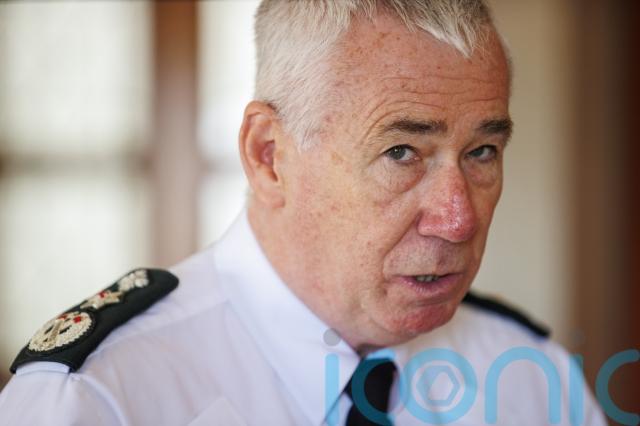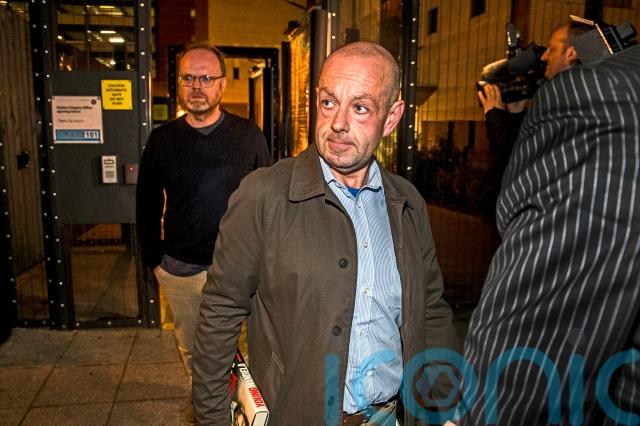
An independent review of covert police surveillance of journalists and lawyers in Northern Ireland is to be published later.
Angus McCullough KC was commissioned by the Police Service of Northern Ireland (PSNI) to examine the issue after a tribunal last year ruled that an undercover police operation to try to unmask the journalistic sources of two award-winning documentary makers was unlawful.
The Investigatory Powers Tribunal (IPT) quashed a decision made by former PSNI chief constable Sir George Hamilton to approve a directed surveillance authorisation (DSA) in an investigation into the leaking of a confidential document that appeared in a documentary on a Troubles massacre made by Trevor Birney and Barry McCaffrey.

The tribunal also looked at separate allegations that the PSNI and the Metropolitan Police in London unlawfully accessed Mr McCaffrey’s phone data in unrelated operations, in 2013 and 2012.
The two forces conceded that those 2012 and 2013 operations were unlawful.
Last year, an internal report by the PSNI disclosed that officers had made 323 applications for communications data relating to journalists since 2011.
The PSNI insisted the vast majority of applications were related to journalists who were victims, suspects or witnesses to crime.
It said 10 of the 323 applications sought to identify a journalistic source using covert powers.
The report also revealed that in the same time period there were 500 applications for communications data related to lawyers who were victims, suspects or witnesses to crime.
The figures were placed in the context that the PSNI makes around 8,500 communication data requests annually for a range of criminal offences.
In addition to the internal review, last year PSNI Chief Constable Jon Boutcher also commissioned an independent examination, headed by Mr McCullough, of any use of surveillance by his officers against journalists, lawyers and other specific groups by the PSNI.
The findings are due to be published later in Belfast. The review period covers January 1 2011 to November 1 2024.

Issues around police surveillance of journalists in Northern Ireland have attracted increasing scrutiny since the 2018 arrests of Mr McCaffrey and Mr Birney as part of a police investigation into the alleged leaking of a police watchdog document that appeared in a documentary they made on the 1994 loyalist paramilitary massacre in Loughinisland, Co Down.
The PSNI, citing a conflict of interest, asked Durham Police to lead the probe into the inclusion of the Police Ombudsman for Northern Ireland document in the No Stone Unturned film on the UVF pub shooting that killed six men.
The PSNI later unreservedly apologised for the way the two journalists had been treated and agreed to pay £875,000 in damages to them and the film company behind the documentary.
In 2019, Mr Birney and Mr McCaffrey lodged a complaint with the IPT asking it to establish whether there had been unlawful surveillance of them. The tribunal reached its determination last year and both men were each awarded £4,000 in damages.
In a further development at the IPT last week, MI5 admitted it “unlawfully” obtained the communications data of a former BBC journalist in Northern Ireland.
The concessions relating to Vincent Kearney came in a letter to the BBC and Mr Kearney, who is now RTE’s northern editor, ahead of a tribunal hearing in London.
Mr Kearney brought legal action after reports that documents in the case of Mr McCaffrey and Mr Birney had suggested that public bodies, including police forces, had spied on him.
The forces included the PSNI, the Metropolitan Police (MPS) and Durham Constabulary.
The tribunal heard that the three forces all concede they had previously obtained communications data belonging to Mr Kearney.
Subscribe or register today to discover more from DonegalLive.ie
Buy the e-paper of the Donegal Democrat, Donegal People's Press, Donegal Post and Inish Times here for instant access to Donegal's premier news titles.
Keep up with the latest news from Donegal with our daily newsletter featuring the most important stories of the day delivered to your inbox every evening at 5pm.